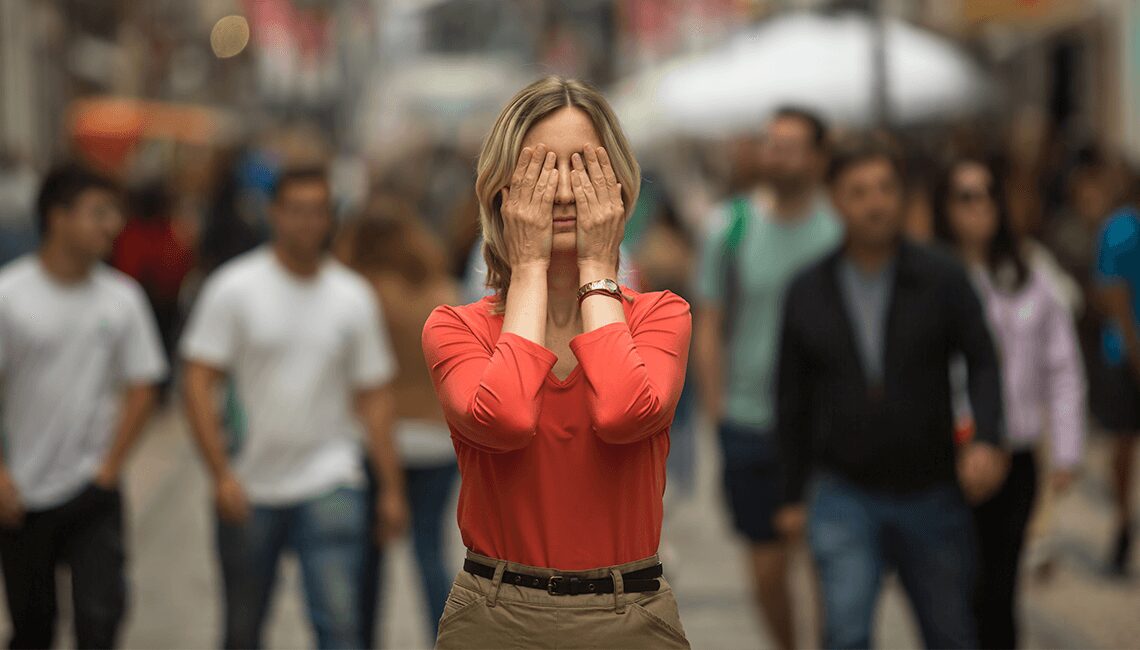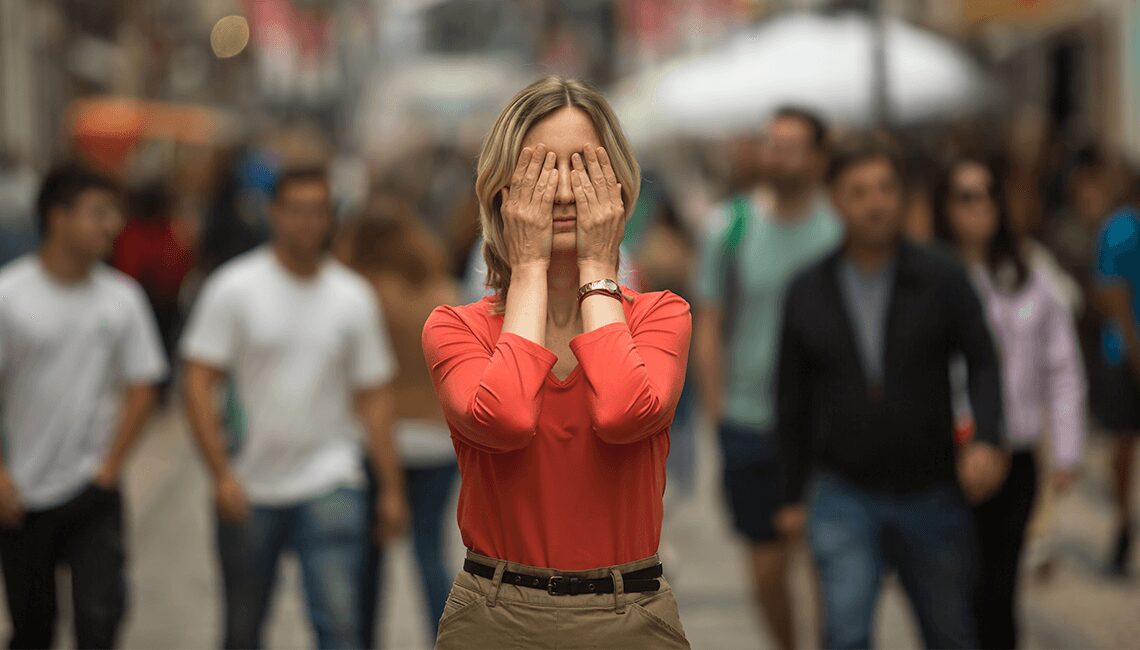Dr. Elizabeth Lombardo has made a career out of approaching complex psychological ideas and molding them into bite-sized concepts. She is the founder of EleVive, which stands for “Elevate your mindset, thrive in life” and is geared towards improving teens/tweens’ relationships with their parents. She has made numerous television appearances, spoken at many events and published books on battling our inner critics and becoming our best selves.
Dr. Lombardo not only shares some of her knowledge on defeating our inner critics in this interview, but also talks about the many feelings and challenges many of us have encountered during the COVID pandemic—and how we can get past them. She also discusses what we can expect from her new book, Get Out of the Red Zone, available this fall.
————————————————————-
Q. COVID has been so difficult for so many, how do you feel it has affected people the most?
A. According to a Pew research poll, “Nearly nine-in-ten U.S. adults say their life has changed at least a little as a result of the COVID-19 outbreak, including 44% who say their life has changed in a major way.”
There have been many struggles and hardships as a result including losing a loved one, dealing with health issues, remote working, job insecurities, financial hardships, e-learning and its consequences, quarantine, lack of social interactions, taking away outlets to promote optimal mental and physical health, lack of access to medical care, heightened levels of distress including anxiety, helplessness and hopelessness.
A study out of Brigham Young University concluded, “The novel experience of mass physical distancing as a result of the SARS-CoV-2 pandemic suggests that social isolation is a significant factor in the public health crisis.”
At the same time, some benefits have also emerged. Many people have done a reassessment of what is important to them. Rather than living on automatic pilot and going through their days, weeks and months on their treadmill of life, they have taken time to figure out what they really want in their lives: closer relationships with loved ones, prioritizing their physical and mental health, taking up new hobbies or even a change in their career to help them experience more purpose and fulfillment. Self-care, including getting more sleep, meditating and exercising, has become a higher priority for many.
Q. We hear that there is a new term called FOGO, what is it and what are the signs that either you or one of your loved ones may be suffering from it?
A. FOGO stands for Fear of Going Out. It is a phenomenon that many people are experiencing now as the doors are opening to work, school and social events. It includes anxiety related to leaving your home or being with people aside from those with whom you spent the pandemic. Symptoms include anxiety, desire to stay home, stress even thinking about interacting with other people, and discomfort regarding engaging in activities that they have not done for the past year and a half.
The saying “if you don’t use it, you lose it” applies here. For well over a year, many people have not interacting socially, have not gone to the office, have not been in school. The skills that one uses in those social and work environments have, in a sense, atrophied. Luckily, there is much we can do to help ourselves overcome FOGO.
Q. What are some easy steps to breaking down the FOGO barriers?
A. Consider hot tub syndrome. Hot tub syndrome is a phenomenon I named that helps explain how we can get over the discomfort of something new. If you’ve ever had the experience where you put your foot in a hot tub and it was too hot, you probably know what I mean. You put your foot in the hot tub and pull it back out because it’s too hot but then dip it in and out several times until it actually feels good to have your foot in the water. You continue this process with your other foot and eventually other parts of your body so, ultimately, you end up in the hot tub up to your neck and it actually feels good. Hot tub syndrome refers to this initial discomfort and ultimate acclamation that we experience when we do something new. The more we do something, even if it feels awkward and uncomfortable at first, the easier it gets. It’s important that people consider hot tub syndrome as they’re venturing out to remind themselves that, although it may be a bit uncomfortable now, the more they do it, the easier it will get.
- Take small steps. If you are feeling anxious about getting into a crowd, don’t go to a concert where there are going to be thousands of people. Instead, start by going out to dinner with a few friends or attending an outdoor barbecue.
- Set yourself up for success. If you are stressed about going to a party, bring a friend with whom you feel comfortable. If you are feeling nervous about going back to work, see if you can start by going in a day or two a week (or even a few hours initially) and then work up to whatever is required from your employer.
- Be assertive. Make sure you clearly communicate your wants and needs to others. For example, when it comes to work, if you are concerned about your health, talk to HR or your manager about how implementing systems can help you feel more comfortable, such as wearing a mask or having your own office.
- Help your children. Anxiety levels prior to the pandemic were at an all-time high for our adolescents. For many, anxiety and depressive symptoms are just getting worse. It is absolutely vital that we teach our young people skills such as emotional resilience, helpful ways to cope with stress and how to have healthy self-confidence to help them now and in the future. I actually created a company called EleVive during the pandemic to provide this specific training to teens and parents of teens.
A teenage brain is already predisposed to be more emotional and with the frontal lobe not fully developed, not always thinking rationally. Providing our young people with the skills of how to better cope with stress will help them improve their mental well-being, be physically healthier, perform better in academics, and be more successful overall.
UNICEF Executive Director Henrietta Fore has shared, “We know that closing schools for prolonged periods of time [has] devastating consequences for children. They become more exposed to physical and emotional violence. Their mental health is affected. They are more vulnerable to child labor, sexual abuse, and are less likely to break out of the cycle of poverty.”
Q. COVID cases are rising daily and people are living in fear of more shutdowns and many parts of the world have gone into a form of lockdown again. Do you think that more shutdowns are going to have serious repercussions on mental health?
A. The pandemic has caused, and sadly will likely continue to cause, significant mental health issues. Feeling lonely, helpless to make changes and hopeless that things will get better can be extremely detrimental to one’s mental health. In addition, for many the quarantine and resulting changes from the pandemic have been extremely traumatic. Regardless of what happens in the future, it is absolutely vital that each person prioritize their mental well-being. This could include incorporating self-care practices into your daily life, meditating, exercising, learning specific skills of how to be more resilient and deal with stressful situations, or talking to a professional. It’s vital that people keep in mind that getting help is not a sign of weakness, but rather a sign of strength. And when you consider that your mental well-being impacts not only how you feel, but also your ability to work, your relationships, and your physical health, optimizing mental health is crucial.
Q. You have a new book called Get Out of The Red Zone coming this fall. Can you explain what the “red zone” is and the premise of the book?
A. The psychological Red Zone refers to high levels of stress. If you consider stress as existing on a continuum from zero (no stress at all) to 10 (the most stressed you’ve ever been), the Red Zone occurs when we are at a seven out of 10 or higher. And the thing about being in the Red Zone is that, not only does it feel worse because you’re feeling more stress, but it also impacts how you think and what you do.
Consider, have you ever been really upset with someone and then walked away only to decide later that it wasn’t that big of a deal? Or have you ever said something in the heat of the moment that you later regretted? It likely was because you were in the Red Zone.


When we are in the Red Zone, our rational brain is – in a sense – hijacked by stress. It causes us to think in more negative ways, feel like a victim of our circumstances and stuck in our situation, personalize other people’s actions, and have our inner critic get even louder. I often tell my coaching clients, if you were in the Red Zone, don’t let anything out of your mouth (because that’s when you say things you later regret) and don’t put anything in your mouth (because that’s when you tend to consume things you later regret). The goal is to get out of the Red Zone and stay out of the Red Zone. Not only will this help you have less stress and feel happier but will have a significant improvement in your relationships and your physical health as well as your ability to focus and be effective at work.
For more information on Dr Lombardo visit her website at www.Elizabethlombardo.com and on Instagram @drelombardo.












